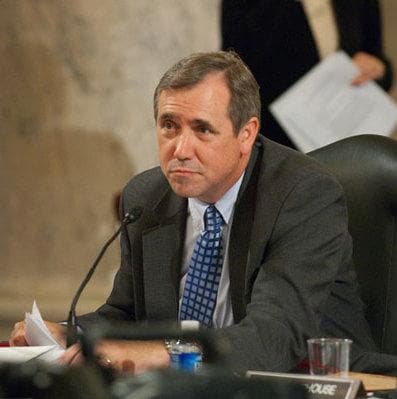Solar Makes Strong Case In Senate Tax Debate
Wednesday, Aug 21 2013

For the first time in decades, Congress appears serious about tackling the issue of comprehensive tax reform. But for the solar industry, there’s a real risk that some members of Congress will try to eliminate all renewable energy tax credits in order to reduce corporate tax rates--and that could roll back the tremendous progress solar has made in recent years.
As part of their effort to advance tax reform legislation, Senate Finance Committee Chairman Max Baucus (D-MT) and Ranking Republican Orrin Hatch (R-UT) told their fellow Senators to assume their favorite tax provision, like the solar investment tax credit (ITC), was dead unless they could generate sufficient support among Senators to keep it in the federal tax code. And the Senate tax leaders gave their colleagues until July 26 to submit letters to the Finance Committee expressing their support for various tax provisions.
As the old saying goes, there is strength in numbers, and so our nation’s renewable energy trade associations came together to defend federal tax policy promoting renewable energy development (like the ITC and the production tax credit). Ten renewable energy associations, representing all the major renewable and clean energy technologies (solar, wind, offshore wind, distributed wind, hydro, biomass, bio-gas, geothermal, waste-to-energy, and combined heat and power) united in their support of Senator Jeff Merkley’s (D-OR) letter advocating for all renewable energy tax credits.
In his letter to the Senate Finance Committee, Senator Merkley made clear that his reasons for supporting these tax incentives were for spurring middle-class jobs and advancing the renewable industry: “Access to clean, abundant, renewable and affordable energy is inarguably in the national interest,” he said in the letter. Senator Merkley was joined by Democratic Senators Tim Johnson (SD), Edward Markey and Elizabeth Warren (MA), Brian Schatz (HI), Tom Udall (NM), Tammy Baldwin (WI) and independent Angus King (ME). We believe another 15-20 Senators voiced their support for solar and other renewable energy sources in their individual letters to the Finance Committee.
It is no surprise that these senators would come together to support renewable energy. Talk about numbers! Solar, wind, and other renewables already provide more than half a million American jobs at tens of thousands of companies around the U.S. More than 35% of all new domestic power generation has come from renewables, including more than 49% of all new power generation in 2012.
The ITC specifically has helped annual solar installations grow by over 1,600% since being implemented in 2006. It has been instrumental in removing market barriers, spurring innovation and creating jobs. Today, more than 30 utility-scale, clean energy projects are under construction, putting thousands of electricians, steelworkers and laborers to work and helping to reduce carbon emissions. These facilities, along with rooftop solar on homes, businesses and schools, will help to generate clean, abundant energy for generations to come.
There is now more than 8,500 megawatts (MW) of cumulative solar electric capacity installed in the U.S. -- enough to power more than 1.3 million American homes. What's more, in the first quarter of 2013, more than 48 percent all new electricity added to the grid was solar. In addition, innovative solar heating and cooling systems are offering American consumers cost-efficient, effective options for meeting their energy needs.
Today, solar employs nearly 120,000 Americans at more than 5,600 companies, most of which are small businesses spread across the United States, making solar one of the fastest growing industries in America. Part of this amazing growth is because of smart federal policies that support renewable energy industries.
In fact, while many of the tax reform discussions are happening behind closed doors, the energy components of the Senate's tax reform process got a rare moment in the sun at a July 31 hearing in which lawmakers argued about the implications of expanding a tax structure that has boosted investment in fossil fuels to a broad range of clean energy technologies.
Subcommittee Chair, Debbie Stabenow (D-MI) made clear that, while she hoped that tax reform would streamline the tax code, it would not do it at the expense of clean energy: “We need a ‘do it all’ approach when it comes to energy production...But we can’t have a true ‘do it all’ approach if we only support one technology with 100-year-old tax credits while ignoring emerging clean energy technologies. Part of our strategy must be supporting innovative new clean energy industries and jobs in America.”
The federal tax code has provided a framework that helped every major source of energy utilized in the U.S. reach commercial scale. Smart, well-crafted tax incentives have played, and should continue to play, a vital role in developing new domestic energy resources and contribute to America’s long-term economic prosperity and growth.
Christopher Mansour, SEIA Vice President of Federal Affairs